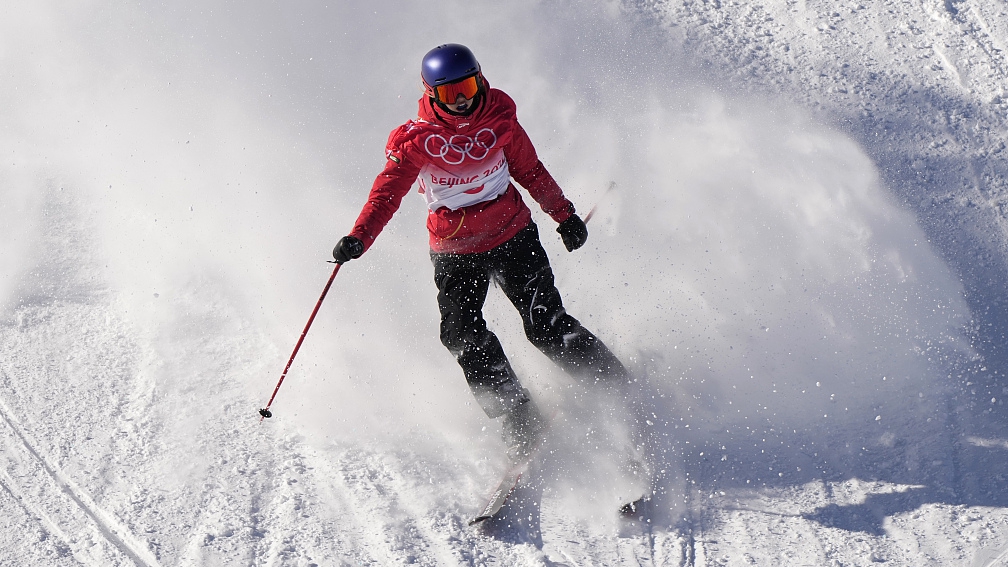
China's Gu Ailing competes during the women's slopestyle qualification at the 2022 Winter Olympics, Zhangjiakou, China, February 14, 2022. /CFP
China's Gu Ailing competes during the women's slopestyle qualification at the 2022 Winter Olympics, Zhangjiakou, China, February 14, 2022. /CFP
Heavy snow in Chinese capital Beijing and neighboring Zhangjiakou affected Sunday's competition schedule for 2022 Winter Olympics as events including the women's downhill were rescheduled due to the adverse weather conditions.
It might come as a surprise for some but snow can indeed affect snow sports, substantially impacting athletes' performance.
First, a change in temperature after snow impacts the quality of snow on tracks. In addition, new snow makes the track surface softer and increases friction. Poor visibility in snowy weather is also a hurdle and can be very dangerous especially for high-speed skiers.
Moreover, strong winds during snowfall can also be bad for the athletes. For example, ski jumping is considered as one of the most weather-sensitive events. It has high requirement for instantaneous wind speed as athletes can get seriously injured if they lose control midair due to wind.
"We have to respect nature and try to guarantee the scheduled competitions of the Games," Zhao Weidong, spokesperson for the Beijing 2022 Organizing Committee (BOCOG), said last Wednesday. "At same time we will ensure the safety and health of the athletes, staff and volunteers."
BOCOG will work on a more accurate weather forecast to better prepare for extreme weather conditions, he added.
Zhao said that weather forecasters will share statistics with technical experts from international federations, who will in turn determine whether it is necessary to reschedule some of the events and how.

